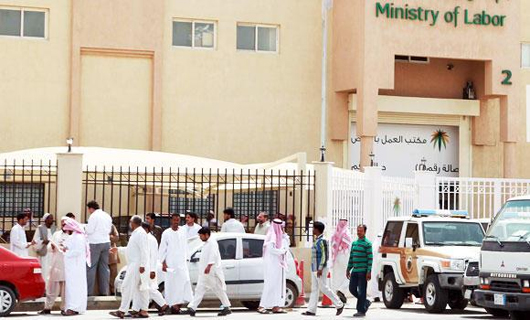
Jeddah, Sep 9: A Shoura Council member has urged the Labor Ministry not to allow major companies to circumvent Saudization laws by signing accords with subcontractors run mostly by expatriates.
“Cutting down on the number of jobs at big national companies and giving their positions to contracting and small firms will have a negative impact on qualitative nationalization of jobs,” said Fahaad Al-Hamad, assistant president quoting the Shoura member.
The member was referring to the practice of major Saudi companies that show 100 percent Saudization but depend on contracting firms run by expatriates for many of their jobs.
There was a 12 percent increase in the number of expatriate workers compared to 2013, despite the government’s move to drive out residency and labor rule violators, Al-Hamad quoted another member as saying.
He also pointed out that the number of unemployed Saudis rose by 3.3 percent this year to 622,000, urging the Labor Ministry to give reasons for this increase despite its efforts to find jobs for Saudis through various programs.
During a discussion on the ministry’s report, another Shoura member emphasized the need to focus on enhancing the professional capabilities and skills of Saudi workers through intensive training.
A female member questioned the ministry for not opening enough offices for employment of women. “Saudi women require greater support from the ministry to get jobs and improve employment conditions.”
The ministry was also questioned for not taking effective measures to supply adequate number of maids required by Saudi families.





Comments
Add new comment